Topics

Gender perspective on development and gender inequalities as one of the key forms of social inequalities are priority areas of SeConS work. Our researches show that full development of the society is possible only if potentials of all people, men and women are employed. On the other hand social development is much more than economic growth and includes just distribution of gains and wealth and equal wellbeing for all people, men and women, boys and girls. SeConS has conducted numerous research in the area of gender equality. Researches are sometimes focused on certain aspects of gender equality, such as economic, gender based violence, care economy in the household, or norms and values. Sometimes, they shed light on the specific positions of certain groups in population, such as entrepreneurs, youth, rural population, or some vulnerable groups, like in case of rural women in the status of family helpers, women from refugee or displaced population, Roma women, victims of violence or women who live with drug users. Our work in the area of gender equality includes also analyses and evaluation of gender equality policies, as well as building capacities of various actors for more competent, evidence based and effective gender mainstreaming at different levels of governance. Below you can browse our projects dealing with gender equality whether through research, policy analyses, capacity building or monitoring and evaluation of gender equality policies.

Rule of law is one of the topics which we have begun to address over the past several years. In addition to limiting arbitrary governance and guaranteeing the protection of individual and collective rights, a state where the rule of law prevails is one of the preconditions for achieving inclusive economic growth. That is why one of our surveys was dedicated to finding out whether Serbian citizens encounter obstacles in exercising their rights before state authorities or judicial institutions. Data indicates that very often, in two out of three cases, citizens fail to report obstacles in exercising their rights. The main reason is their lack of trust in the impartiality and efficiency of state institutions. We also analyzed the free legal aid system and showed how important it is when it comes to exercising rights of citizens, particularly those from vulnerable groups. Most citizens use free legal aid because they cannot afford a lawyer. The practice of pro se legal representation is also widespread. SeConS is actively engaged in analyzing the process of adopting laws and public policies in the Republic of Serbia. Being involved in the CSO coalition Open Parliament, we examined the activities of the National Assembly of the Republic of Serbia and discovered important mechanisms of the legislative process in Serbia. The executive branch of government plays a crucial role in creating laws. But external consultants are often engaged (experts, representatives from the nongovernmental sector, etc.) to participate in the preparation of bills, although it is not always clear who they speak for and whose interests they represent. Another important link in the legislative process is the National Assembly. However, data shows that members of parliament only dedicate half of a single working day to each bill, as the parliament is under pressure from a large number of bills to be adopted, and urgent ones in particular. In addition to the “shallow” legislative role of the National Assembly, we discovered a similarly “shallow” and superficial role of the public: public debates are not an adequately efficient means for the public and the civil society to be included in the legislative process, as they are held rarely, with tight deadlines and with no obligation to include ideas brought forward in public debates into the bills.

The human security approach is relatively new and specific, being primarily oriented towards the individual, i.e. focusing on a personal feeling of security of an individual, which may be impacted by various factors. As opposed to traditional approaches, where human security used to be viewed in the context of external threats, a redefined concept of human security aims to bring insecurity and vulnerability of individuals to the forefront, allowing us to understand some of the key processes which are not visible at first sight, but which threaten peoples’ lives on a daily basis. The three “pillars” of the human security concept are freedom from fear, freedom from want and the freedom to live with dignity. Human security is considered to have been attained if all three freedoms are achieved – if human lives are in no way threatened, if decent living conditions are provided and if individuals feel secure and respected in their immediate, as well as broader environment. The concept of human security is not merely a theoretical construct, and can be broadly implemented in practice as well. Numerous surveys which often combine various methodologies are conducted to determine the condition of human security at specific levels (local, national, regional), aiming to provide a comprehensive picture of the actual state of human security.As there are multiple sources of insecurity for individuals and threats to human security in general in Serbia, SeConS researchers are particularly focused on analyzing various aspects of human security within all the various available contexts. In their activities so far, SeConS researchers have studied human security in the context of workplace violence, violence among children and youth, gender based violence, ethnic conflicts, poverty as structural violence, homelessness, as well as risks to human security in the context of forced migrations and exiled refugees. SeConS is a member of the regional Citizens’ Network for Peace, Reconciliation and Human Security for Western Balkans and Turkey.

Once the period when development policies on the global level were guided by the millennium development goals expired, the UN developed a new global development agenda founded on three main pillars: eradicate poverty, protect the planet and ensure prosperity for all. The new development agenda comprises 17 Sustainable Development Goals. Unlike the prior millennium development goals which were defined by experts, sustainable development goals are based on wide-ranging consultations involving citizens of many countries who had the opportunity to communicate their own development priorities. Serbia was one of the countries where two rounds of consultations were held.In the first phase of consultations, SeConS, in partnership with the United Nations team in Serbia, organized a consultation process with 28 000 citizens of Serbia voicing their opinion on development priorities, through social media, standard questionnaires, online surveys and face to face consultations (http://www.srbijakakvuzelim.rs/). In the course of these consultations, citizens pointed out the significance of cultural aspects of development, as they underlined the need to advance the culture of respecting the law, tolerance and responsibility in Serbia. In view of these findings, in the second round of global consultations, Serbia was in the group of countries where special consultations on the connection between culture and development were held.The first Internet website in Serbian language providing information on new global development agenda and sustainable development goals was prepared by SeConS, with the support of the Open Society Foundation (http://www.ciljeviodrzivograzvoja.net/) SeConS is a member of the Global Compact Working Group for promoting sustainable development goals.

Social inclusion and poverty reduction is a relatively new paradigm which is the foundation for social policies and efforts to improve social integration and social cohesion, primarily in the European Union and its neighborhood as an area for its further expansion. This political paradigm is founded in various traditions of social theory on the European continent, as well as various welfare regimes created to protect the population from social risks. SeConS had a pioneering role in the processes of accepting this political discourse and framework, through publications, action surveys and Internet course which contributed to improving the Serbian understanding of relevant concepts, policies and instruments for developing and coordinating social inclusion policies in the EU. Independently or in partnership with other civil society organizations and relevant state institutions, primarily the Team for Social Inclusion and Poverty Unit, SeConS published reference studies, like the one on the challenges of the new social policy and carried out pioneering surveys, like the one on social exclusion in rural areas in Serbia as well as advancing the knowledge and competences of various relevant actors. The Internet course on social inclusion developed in partnership with the SIPRU team ( www.Inkluzijakurs.info ) has been included in the training program of the Government Human Resource Management Unit. Through surveys, monitoring and evaluation of policies, SeConS worked on problems of social inclusion of various marginalized groups, such as the Roma population, displaced persons, migrants, the rural population, women in the position of family helpers, female victims of family and other gender based violence, persons with disabilities, intravenous drug users, and others.

Being on the labor market is one of the most important channels of social inclusion for individuals and groups and is a precondition for achieving a satisfactory standard of living. For children and youth, developing their potentials is closely related to the likelihood of their entering the labor market later; for the working age population this an economic and social inclusion issue, allowing them to earn an income which can provide a good quality of life; for the older generation, this enables them to accumulate experience to warrant a an adequate old age pension. For the state and the society, this means making proper use of human resources and creative contribution from its population to generate economic and social growth.Reviewing employment from the broader perspective of social inclusion and inclusive and sustainable development, SeConS conducted various studies in this area: survey of employment characteristics and position of various groups, entrepreneurs and entrepreneurship potential, possibilities of employment and characteristics of vulnerable groups in the labor market, such as displaced persons, refugees, the Roma population, women, youth, the rural population and persons with disabilities. SeConS also carried out surveys on coordination between the education system and the labor market. Through its research, SeConS also contributed to practical projects of estimating financial potential when awarding funds to support entrepreneurship and employment of Roma men and women in cooperation with OSCE. Measures for promoting women entrepreneurship were reviewed and improved on the basis of the Baseline Study on the Entrepreneurship of Women in Serbia.

SeConS approaches the subject of migrations as a development phenomenon, but also as an issue related to social exclusion risks. Our research sometimes includes the issue of migration within broader topics of research, such as migration and local or rural development, employment, etc. In other cases, migrations are the main subject of our studies, such as the survey on irregular migrations in Western Balkans conducted in cooperation with IOM or the study on correlation between migrations and sustainable development goals, conducted in cooperation with UNCT, etc. Our experts have particularly dealt with the issue of forced migration and social exclusion risks, which presented a significant problem in the previous decades due to war conflict in ex-Yugoslavia. Studies on the position of displaced persons, refugees, asylum seekers and returnees are an important area of research for SeConS. In addition to research, SeConS experts have significantly contributed to the development of policies for managing migrations, analyses, monitoring and evaluation of various policies and measures, at national and local levels. Recently, SeConS experts also began contributing to the area of study and management of migrations through education, with training courses on migrations as part of a new study program at the Belgrade University.

As opposed to approaches to development which dominated the period of industrialism, where central governments and national policies played a key role in planning, promoting and directing growth, contemporary approach pays particular attention to local development and the role of local communities. In line with this type of approach, which is especially relevant for Serbia, in view of its post-socialist transformation and decentralization of administration, SeConS is particularly focused on local development. SeConS bases its projects directed at research, monitoring and review of local growth, proposing policies for local development or capacity building of local development actors SeConS on the approach which gives special consideration to local, endogenous resources and potentials. SeConS conducted surveys aiming to shed light on certain aspects of local development or to examine regional inequalities. Rural development and the development of urban areas are special fields of SeConS research and analysis. SeConS experts have put a great deal of effort into investigating and improving social inclusion policies, gender equality, employment, education and social welfare in local communities. During the first decade of working with local development, SeConS teams conducted surveys on local development in 35 municipalities and towns, trained more than 200 representatives of local administration and public institutions in various areas of public development policies. They developed handbooks for developing social inclusion policies and gender equality policies at the local level. They played a part in the preparation of 30 local sector strategies important for local development. Partnering with UNICEF and the Statistical Office of the Republic of Serbia, they contributed to improving the DevInfo database on the local level which enables monitoring of various aspects of local development.

Creating an environment where children and youth are able to satisfy their needs and develop their full potential is a necessary prerequisite for inclusive and sustainable development. Creating new generations of responsible citizens will only be possible if the rights of today’s generations of children are protected and a safe and motivating environment for their development is created. It is particularly important to provide opportunities for children from marginalized social groups to access those social resources without which they would not be able to develop their potentials nor create decent living conditions. SeConS focused on youth and children as subjects of research on multiple occasions. The position of children and youth in situations of various social risks – living in remote and undeveloped regions, in periods of forced migration, poverty, social exclusion, to name some examples. Bullying among children and youth is part of the regional topic of research launched within monitoring of human security in the Western Balkans and Turkey region, conducted by the Citizens’ Network for Peace, Reconciliation and Human Security. SeConS is trying to shed light on various aspects of violence against children or violence among children, using various research methods. An assessment of the implementation of the protocol for prevention of violence against children was conducted by SeConS on two occasions, as the starting point for developing programs and measures for advancing this inter-sectoral initiative. Our team of experts is working on a comprehensive study on factors of violence against children and interventions aimed at prevention and protection of children from violence which have been implemented since 2000. The study is intended to be the basis for developing a high quality Action Plan for preventing violence against children in the future. A team of SeConS experts had the opportunity to participate in an international research project conducted by the Friedrich Ebert Foundation –a youth study carried out in a number of countries, using the unique Shell methodology. This comprehensive survey provided insight into the position, beliefs, values and hopes of young people in Serbia in 2015.

The sector of social entrepreneurship includes a variety of manufacturing and business organizations whose founding was not based on profit, but rather on solving specific social issues or encouraging sustainable local development. It may be manifested in multiple forms: citizens’ associations, social cooperatives, business incubators, as well as standard limited liability companies. It depends on specific circumstances in different countries, whether there is a special law or national strategy regulating its establishment and operation, what is the tradition of solidarity organization in economic activities, what kind of financial support measures are in place, etc. Social enterprises differ from traditional civil society organizations by more pronounced economic activity and readiness to take economic risks in their operations. At the same time, social enterprises are clearly different from for-profit companies and traditional cooperatives by a stronger orientation towards broader social goals and interests of the community.Social economy is a broader concept than social entrepreneurship. This field of economy constitutes ‘…a broad range of activities which have the potential to provide the opportunities for local people and communities to engage in all stages of the process of local economic regeneration and job creation, from the identification of basic needs to the operationalization of initiatives. The sector covers the economic potential and activities of the self-help and co-operation movements, i.e. initiatives which aim to satisfy social and economic needs of local communities and their members’ (Molloy et al, 1999). This sector includes different types of cooperatives, social enterprises, non-governmental organizations engaged in solving various social issues, organizations founded and supported by the public sector which cooperate with civil society organizations, different organizations and initiatives that support the work of those who directly solve social issues, etc. In the most general sense, initiatives in the field of social economy are primarily focused on human needs.
